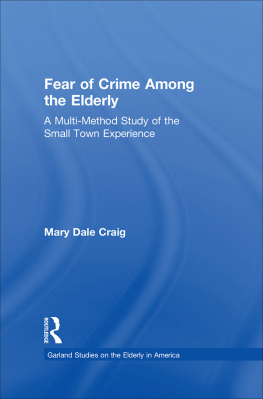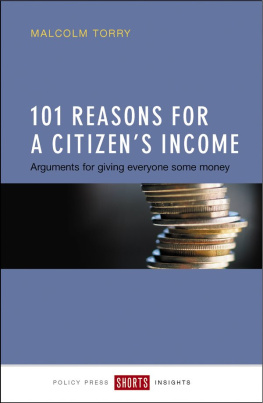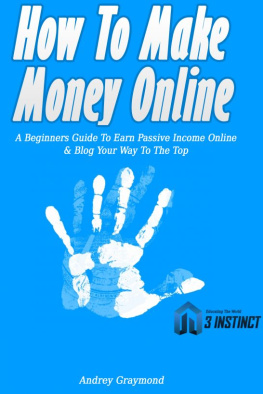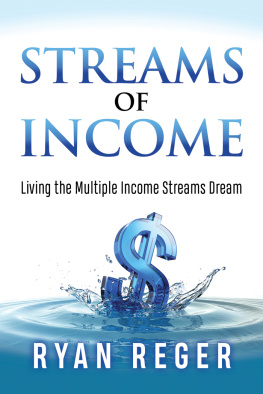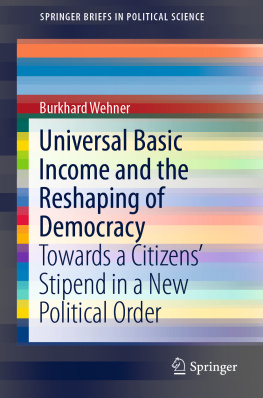GARLAND STUDIES ON
THE ELDERLY IN AMERICA
edited by
STUART BRUCHEY
UNIVERSITY OF MAINE
URBAN YOUTH AND THE FRAIL ELDERLY
RECIPROCAL GIVING AND RECEIVING
DORIS SCHINDLER
First published 1996 by Garland Publishing, Inc.
This edition first published in 2021 by Routledge
605 Third Avenue, New York, NY 10017
and by Routledge
2 Park Square, Milton Park, Abingdon, Oxon OX14 4RN
Routledge is an imprint of the Taylor & Francis Group, an informa business
Copyright 1996 Doris Schindler
All rights reserved. No part of this book may be reprinted or reproduced or utilised in any form or by any electronic, mechanical, or other means, now known or hereafter invented, including photocopying and recording, or in any information storage or retrieval system, without permission in writing from the publishers.
Notice:
Product or corporate names may be trademarks or registered trademarks, and are used only for identification and explanation without intent to infringe.
Publishers Note
The publisher has gone to great lengths to ensure the quality of this reprint but points out that some imperfections in the original copies may be apparent.
Disclaimer
The publisher has made every effort to trace copyright holders and welcomes correspondence from those they have been unable to contact.
Library of Congress Cataloging-in-Publication Data
Schindler, Doris.
Urban youth and the frail elderly : reciprocal giving and receiving / Doris Schindler.
p.cm. (Garland studies on the elderly in America)
Revision of authors dissertation (Ph.D.)Portland State University, 1992.
Includes bibliographical references and index.
ISBN 0-8153-2331-X (alk. paper)
1. AgedServices forUnited StatesCase studies. 2. Frail elderlyServices forUnited StatesCase studies. 3. Urban youthEmploymentUnited StatesCase studies. 4. Socially handicapped youthEmploymentUnited StatesCase studies. 5. Intergenerational relationsUnited StatesCase studies.
I. Title. II. Series.
HV1461.S285 1996
ISBN 13: 978-1-03-216627-8 (hbk)
ISBN 13: 978-1-03-216774-9 (pbk)
ISBN 13: 978-1-00-325008-1 (ebk)
To Gerry, without his energy, enthusiasm and optimism, all this would not have been possible. He pursued his impossible dream that the way to attack juvenile delinquency was to engage youth in meaningful jobs.
Contents
My first experience with an intergenerational endeavor was shortly before the success of producing an effective polio vaccine. The small town where I worked was located in the northern part of British Columbia. An outbreak of polio was threatening the southern part of the province, paralleling the U.S./Canadian border. Other similar outbreaks had occurred in this area but had not spread in a northern direction. But this time the disease began to invade what was known as the Caribou area along the Caribou trail. At that time this was a virgin area for the disease and it was relatively easy to follow the spread. It finally reached a town of about 10,000 and panic followed. It was not a particularly lethal epidemic but it left in its wake paralyzed arms and legs, and the nearest center for physical therapy treatment was about 250 miles away.
The inhabitants of the town were stunned by the outbreak of this dreaded disease. But one man was looking ahead. The high school principal was anticipating the need for physical therapy. He was young and energetic and soon had enlisted the help of some of his students to meet the challenge.
The town recently had acquired a disused army hospital so space was no problem. Remodeling and equipment were needed. The students canvassed the businessmen in town for the needed materials lumber, plumbing supplies, and appliances. Manpower was promised, and much needed cash.
In a few weeks a well equipped physical therapy department was ready for its clients. The pool was equipped for transporting, and for lifting patients into the brand new pool. An interesting piece of equipment was ready for use for those with arm and shoulder disabilities. A big old river-boat steering wheel was attached to a wall, adding a quality of imagination to that of physical treatment. Finally the students had raised enough money to pay for a physical therapist for a year.
While all this was being accomplished the adults in the area were emerging from a state of shock. They found that the energy and enthusiasm of a group of teenagers and their leader had provided the means to treat those who had been crippled by polio.
The memory of this intergenerational project remained with me for a long time, especially the hidden power in a group of youth, ready to be put to use. I kept looking for similar incidents.
Many years later when I was a graduate student. Dr. Gerry Blake of Portland State University invited me to join a project involving disadvantaged youth who were to be trained to shop for groceries for the frail elderly. But now this endeavor was named an intergenerational program.
I had tried to get information about this process but it was hard to find in periodicals. Project MAIN was one of the many new ways of attacking problems especially in urban areas. A recent scan of literature now gives numerous accounts of youth helping age, age helping young, and both age groups working together to meet community needs.
This study is the result of the help and assistance given to me during the course of its preparation. It was my pleasure to work closely with Dr. Gerald F. Blake. His energy and enthusiasm were essential in keeping the process moving forward. My thanks to Drs. Nancy Chapman, Leonard Cain, David Morgan, and Maria Talbott for their continued support and encouragement.
The staff of Friendly House gave freely of time and interest in Project MAIN. The participating youth were given the experience of working with adults in meaningful work. Last, but not least, I want to thank my family for the gifts of time and space in which to complete this study, special thanks to Karen Ferguson, and to Helen Eggleston, my faithful typist.
Urban Youth and the Frail Elderly
There are two groups of urban residents who, although quite unlike each other, can complement each others needs. They are the frail elderly and low-income teenagers.
Many of the frail elderly are physically confined to their homes, unable to do ordinary errands, because of their debility, chronic illness, or other functional impairments.1 Many low-income teenagers may be at risk because of family backgrounds and inadequate education.2
The frail elderly need help with grocery shopping, and low-income teenagers need an income-generating jobs program so that they may earn some money. The matching of needs in Project Main was an attempt to coordinate disparate community demographics in a mutually beneficial way.


